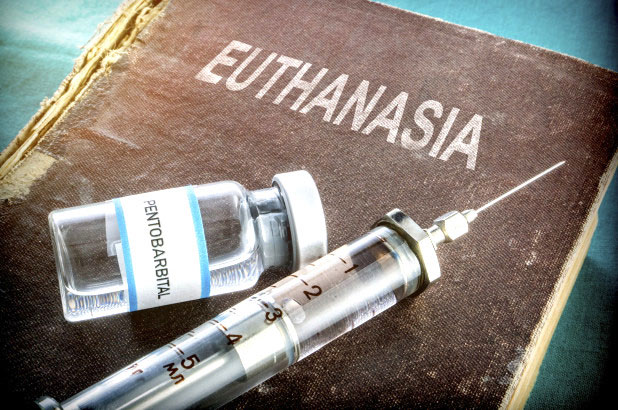Is suicide/euthanasia really death with dignity?

With an untreatable degenerative disease leaving her wheelchair-bound since 2000, Paralympic athlete Marieke Vervoort (1979-2019) signed all required legal papers to end her life as she contemplated to die “a dignified death.” Last month, the 40-year old Olympic champion ended her life through legal euthanasia.
A Dutch writer of children’s literature, Annie M. G. Schmidt (1911-1995) made a million kids happy with her popular prose and poetry. On her 84th birthday, she decided to take her own dear life by way of euthanasia, taking pills that stopped the beating of her heart.
Remember the highest ranking Armed Forces chief and defense secretary Angelo Reyes who shot himself in front of her mother’s grave at the Loyola Memorial Park in Marikina on February 8, 2011?
Death seems to be the only remaining equalizer for the great and the not so great personalities, and the grave appears to be the most impartial and fairest of all grounds. For the countless ones who looked death in the face via suicide or euthanasia or assisted suicide, death was seen as THE END OF SUFFERING, PAIN, AND EXTREME LONELINESS.
Made famous by her role as Auntie Em in the 1939 film The Wizard of Oz, Blandick wrote before she committed suicide: “I cannot endure this agonizing pain any longer. It is all over my body. Neither can I face the impending blindness. I pray the Lord my soul to take. Amen.”
In the contemporary discussions of euthanasia and suicide, we can’t fail to mention the underlying philosophy of Plato (428-348 BC), a disciple of Socrates and founder of the Academy at Athens, Greece, whose concept of the human body is like a prison that curtails the freedom of the soul. Marilyn Monroe (1926-1962), Swedish songwriter Avicii (1989-2018), and Clara Blandick (1880-1962) thought just like that; that is, only when the soul is released from the body in death could a human person fully enjoy a true life in the spiritual world of liberated souls.
Is suicide or euthanasia really a death with dignity?
International fans were the opposite of cheer and calm when celebrities decided to end their lives, living legends gone like the wind:
Anthony Bourdain (1956-2018)
Kate Spade (2018)
Robin Williams (1951-2014)
Philip Seymour Hoffman (1967-2014)
Whitney Houston (1963-2012)
Tony Scott (1944-2012), and a long list of et cetera
I could only sympathize with people who are undergoing serious depression and who feel so hopeless. However, does a severe sickness, hardships, or a terminal illness make a person “undignified”? Is the doctor or the person himself the executive guardian or terminator of the “over-burdened” human life? No, but God is. And shouldn’t we allow our human life to follow the natural cycle from conception to natural death, from cradle to tomb, as God determines?
I recall how Pope Francis urged Italy’s best physicians to “reject the temptation… to use medicine to support a possible willingness of the patient to die.” The Holy Father spoke of encountering in patients persons who are unique in their dignity and fragility, and not just in their illness (September 19, 2019).
As always, take note, that particular papal pronouncement was ultimately based on a Christian teaching regarding the sacredness and inviolability of human life, a teaching that is way above and beyond all populist rants, emotionally charged choices, or democratic votes.
Jose Mario Bautista Maximiano (facebook.com/josemario.maximiano) is the author of 24 PLUS CONTEMPORARY PEOPLE: God Writing Straight with Twists and Turns (Claretian, 2019) and THE CHURCH CAN HANDLE THE TRUTH: Mercy-Healing of Historical Wounds (Claretian, 2017).

